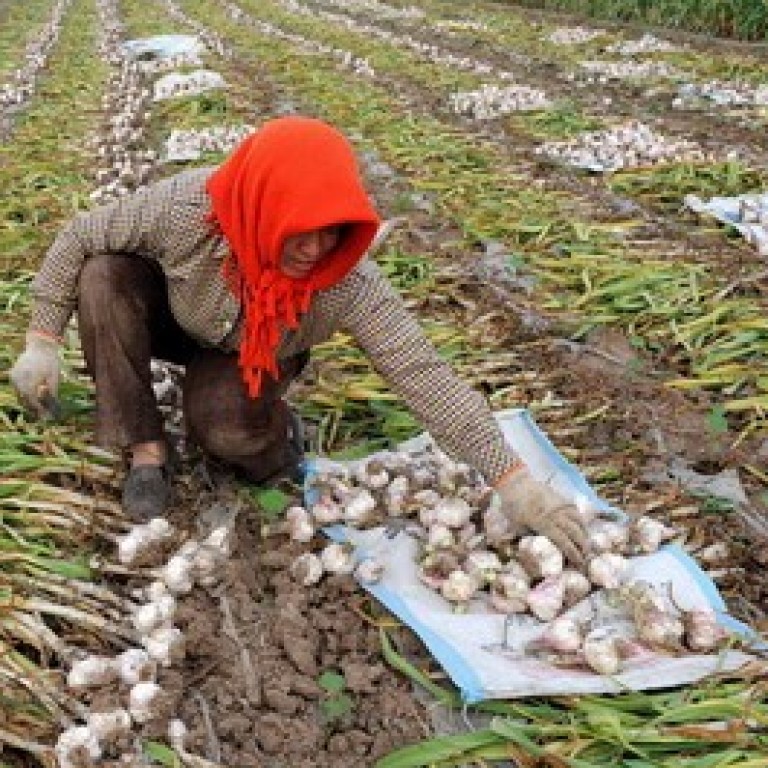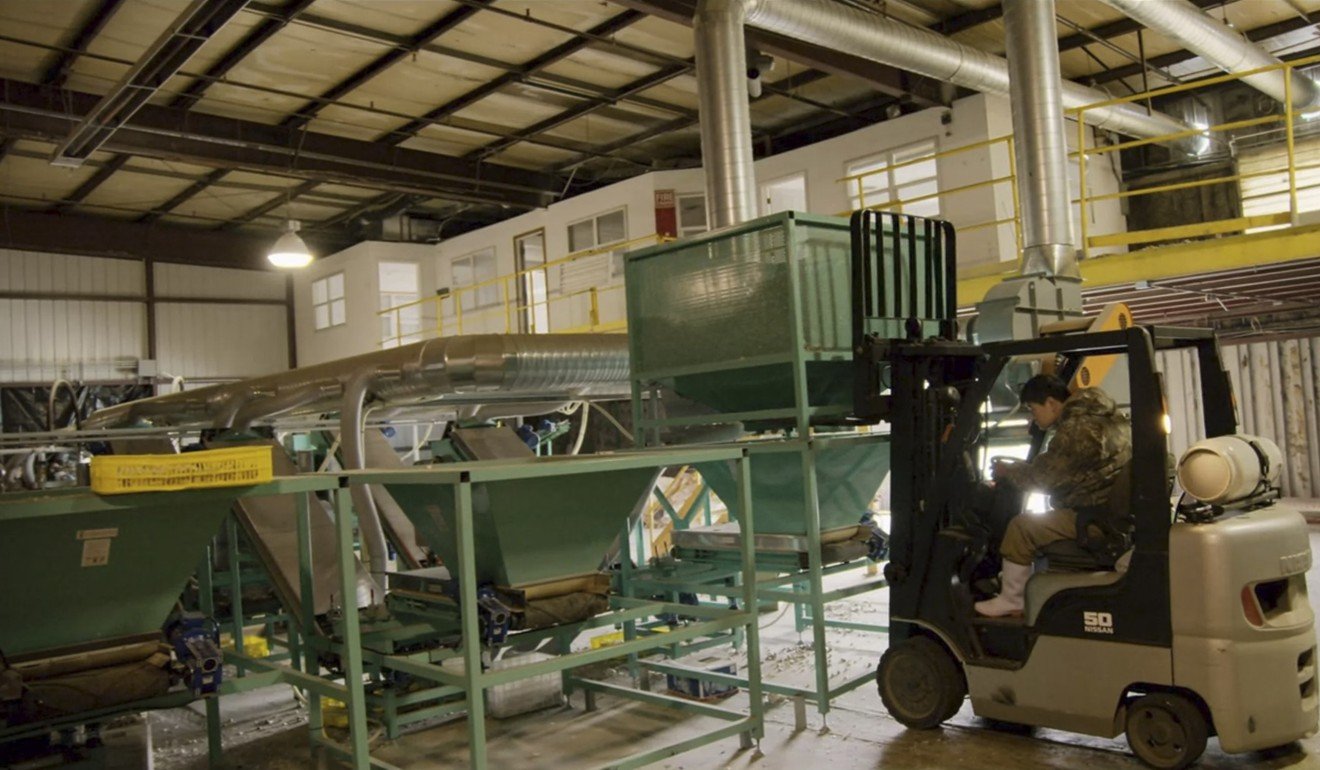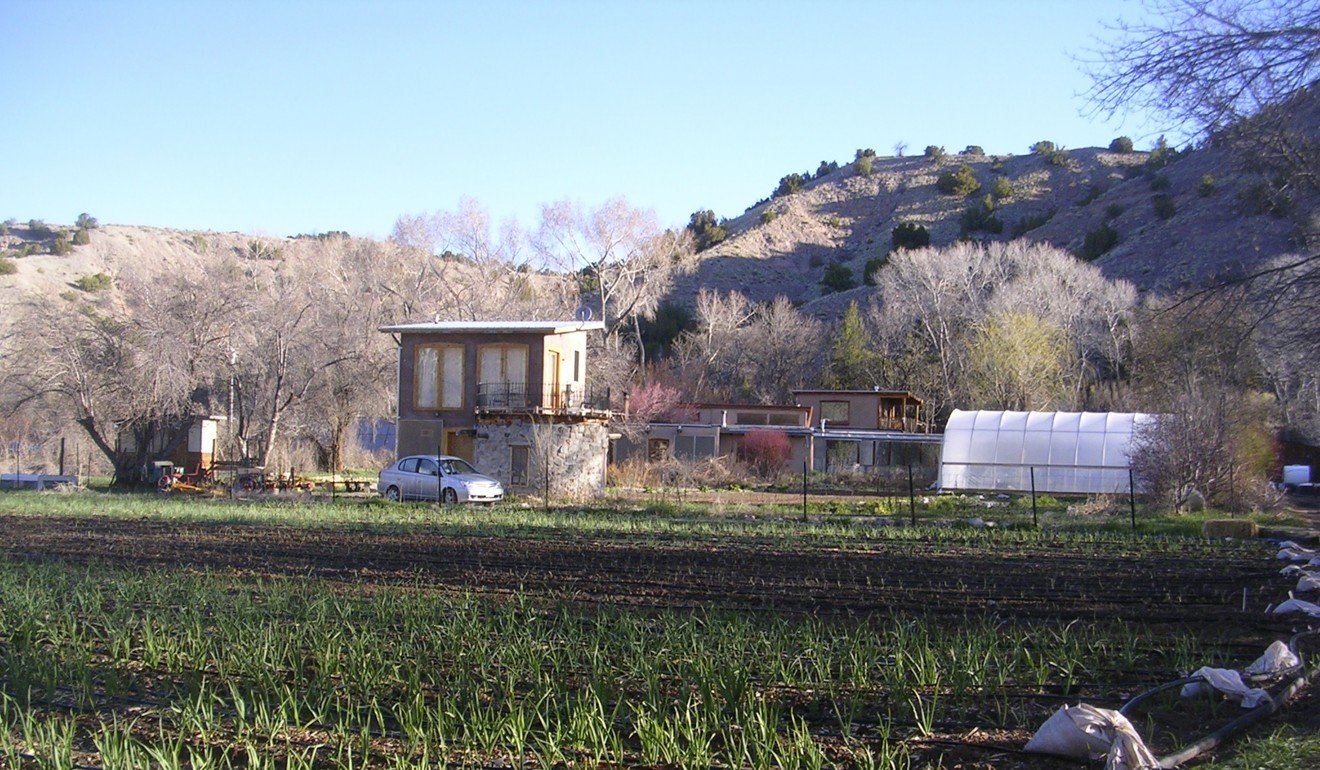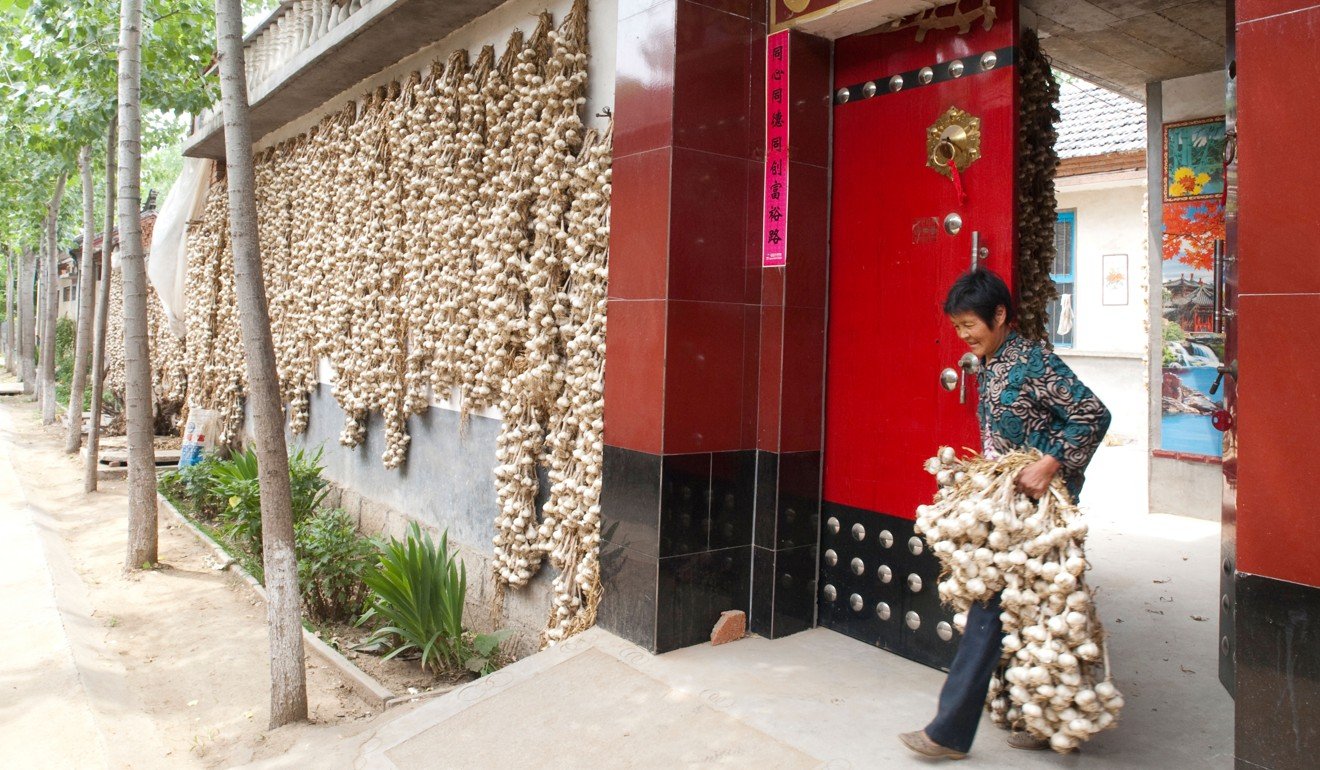
Did the US-China trade war start with a court case about Chinese garlic?
- Exporter Xu Mingju accused of flouting US anti-dumping duties having initially lost his job as a professor of sociology in the wake of the 9/11 attacks
- He took undercover footage of prisoners peeling garlic in Jinxiang, and handed the footage to the makers of the Netflix documentary series, ‘Rotten’
A Chinese immigrant to the United States has become a key player in a trade dispute that is pitting industry powerhouses in his native China and the US against small farmers trying to make a living out of growing garlic.
When Xu Mingju moved to the US in 1999 he was hoping to carve out a career in medical research. Instead, 20 years later, he has become involved in complex international litigation which has seen him accused of racketeering – a charge usually reserved for mobsters.
At a perilous time for US-China trade relations, the case – which includes accusations of large-scale international bribery, back room deals to flout US law, and the use of prison labour to slash costs – presents an intriguing view of a Chinese exporter engaging in open commercial warfare on US turf, with small US and Chinese farmers caught in the middle.
Xu, a professor of sociology with 15 years’ experience at Lanzhou University in northwest China, was working as a research assistant at the prestigious Albert Einstein College of Medicine in New York when his world turned upside down soon after the 9/11 attacks.
“I lost my job, because the US government reduced the funding for research. My English was not good enough to teach. I could only do the research. In China I could teach, but in China my English was only good enough to be a research assistant,” he told the South China Morning Post.
US farmers in Washington to seek end of the trade war with China
Garlic trading was a natural next step for Xu, who comes from Jinxiang county in the eastern province of Shandong – heart of the world’s largest garlic growing region. According to the United Nations Food and Agriculture Organisation, it produced 80 per cent of the world’s total yield in 2017.
Xu and his wife, Jin Xia Wen, founded their company C Agriculture in 2005, importing peeled garlic from Shandong.
But, with China’s rising labour costs, their business model became less economical. So, three years ago, Xu and Jin put their money into a garlic farm in Pine Grove, Pennsylvania, in an old coal-mining county in the heart of America’s rust belt.
They converted an old factory that had been used to make modular homes into Roots Farm, a two-acre site where they grow garlic and peel garlic bulbs – which have a longer shelf life – imported from China, South America and Europe, using peeling equipment paid for with their own savings and money from family members.
Roots Farm, which currently employs seven full-time staff – rising to 10 during busy periods – produced 700,000 pounds of peeled garlic in the first nine months of 2018.
But Xu claims the business is being held back by cheap imports from his native China which, he says, are sourced in nefarious ways.

A few years ago, on a trip back to Shandong to visit family, Xu heard prison labour in the region was being used to peel garlic, which was then being exported to the US.
“Prison labour in that area is a public secret. Everyone knows the prisoners are peeling garlic. Now you know all the prisons in Jinxiang do the same job,” Xu said.
Xu, posing as a garlic buyer, took undercover footage of prisoners peeling garlic in Jinxiang, and handed the footage to the makers of the Netflix documentary series, Rotten.
Xu claimed China’s biggest exporter of garlic to the US, Harmoni International Spice, was massively reducing its costs through the use of prison labour, to a level below the minimum wage in Jinxiang of 15.5 yuan (US$2.30) per hour.
“But Harmoni can still make money. Its real costs are much lower than the minimum wage. The reason is they use prison labour,” Xu said.
Harmoni denied the accusations and responded by bringing charges of racketeering, under the US Racketeer Influenced and Corrupt Organisations Act (RICO), against Xu and a host of other defendants – Chinese and American – who had also questioned Harmoni’s trading practices.
The case was thrown out in 2017, but in January, Harmoni brought a slimmed down version to the appeal court which is likely to be heard in California’s Ninth Circuit in coming weeks.
Stanley Crawford, another defendant in the racketeering case, quite literally wrote the book on garlic growing.
A novelist-turned farmer, his 1998 book A Garlic Testament: Seasons on a Small New Mexico Farm has been hailed by Publishers Weekly as “a treasure trove of planting lore [as] pungently powerful as [Crawford’s] crop of choice”.

In 2016, he was one of the small US garlic farmers who petitioned the Department of Commerce to review Harmoni’s import arrangements and subject them to the same tariff as other Chinese growers.
Since 1994, imports of fresh garlic from China to the US can be subject to an anti-dumping duty of 376.67 per cent, but first a US grower must request a review.
Crawford – along with another New Mexican garlic farmer, Avrum Katz – filed review requests after being approached by trade lawyer Ted Hume.
The Department of Commerce conducted a preliminary investigation of Harmoni, finding that it should be subject to duties. This ruling has also been appealed in the courts.
Inside the US delegation for China trade war talks: Washington’s big guns will be absent
Harmoni’s 2016 lawsuit claimed Hume, Crawford, Katz and Xu were among those conspiring with big garlic producers in China to file “sham review requests” with the Department of Commerce.
The Harmoni court filing accused Crawford and Katz – who subsequently withdrew his request for a commerce department review – of serving “as secret agents for members of the Chinese Garlic Association”, a group of Chinese-based garlic producers, also named in the RICO charge.
It was also claimed that the Chinese parties had established a US$1.6 million war chest to buy off small US farmers.
Harmoni alleged the ringleaders in the case were China-based businessmen Jack Bai and Ruopeng Wang, who had a “material interest in seeing Harmoni fail”, according to the company’s litigator, George Mastoris.
In turn, Harmoni and its lawyers painted Crawford, Hume and Xu as puppets of China’s Big Garlic sector.

Crawford admits that he received money from Hume, thought to be in the region of US$50,000, after he joined the lawsuit.
“The money that came from Ted was some eight months before I invited Avrum Katz to join the effort, and I made no secret of it, delighted as I was to be able pay off credit cards and put a down payment on a new tractor,” Crawford said.
He denies having heard of Xu Mingju, his co-defendant, before the racketeering documents were served.
“We were totally surprised, we had no idea who he was,” Crawford said.
Xu, meanwhile, denies knowing Hume or Crawford. He said he knows some of the Chinese defendants, but only through the “small world” of garlic wholesalers.
“We have nothing to do with him,” Xu said, when asked about Jack Bai, a garlic mogul who is portrayed in the court filings as the mastermind behind a transnational operation to destroy Harmoni’s import business.
How US trade war and other efforts to thwart China’s rise have actually accelerated its reform and innovation
Bai has also been represented by Ted Hume, the trade attorney.
“We have not received any investment, any offers, any future contracts, any options, from any Chinese businesses that are involved in garlic. We really have nothing to gain in helping Chinese parties – we have invested so much in an American facility,” Xu said.
Bai, meanwhile, seemed surprised when reached on his mobile phone in Shandong, demanding to know where the Post had obtained his number, but denying orchestrating a campaign to take Harmoni down.
Despite being found by Department of Commerce officials to be “not credible”, he said that “the US garlic market has been monopolised by some American garlic farms and their Chinese agent Harmoni”.
While tariffs have gone up dramatically for all other importers of Chinese garlic in the US, Harmoni continues to pay no duty
“There used to be a lot of Chinese garlic exporters, but they had to quit the game due to the unfair treatment by the US Department of Commerce,” he added.
Crawford, in a telephone interview from his farm in New Mexico, made a similar claim of unfair practice.
“Our opposition figured out how to game the system 15 years ago. They’ve paid zero duty for 15 years, because they can game the system,” Crawford said.
“This is gross abuse of the system,” Crawford said. “Something is going on here that’s much bigger. I am a small producer, I grow two acres, a hectare of garlic, and we have four international law firms fighting my little farm. I mean, what’s going on here?”
Since 2004 Harmoni has been the only company able to import Chinese garlic to the US at cost price and freely sell it on the market, as it has not been nominated for review by any US grower until the request by Xi, Crawford and Katz in 2016.
“While tariffs have gone up dramatically for all other importers of Chinese garlic in the US, Harmoni continues to pay no duty,” said Anthony Lanza, a lawyer defending some of those named in the racketeering suit.
“Their market share has gone up astronomically in the past five years, from 20 per cent of the US market for imported Chinese garlic to 80 per cent,” he said.
Lanza accuses Harmoni of collaborating with US industry giant Christopher Ranch, which strenuously denies the claim.
Harmoni did not respond to requests for comment.
Lanza accuses Christopher Ranch of buying a significant amount of Harmoni’s garlic with the implication that, by not nominating Harmoni for review, it could keep its own costs low.
China seeks World Trade Organisation backing for US$7 billion sanctions on United States over dumping duties
“As Harmoni doesn’t engage in the illegal dumping of Chinese garlic in the US, the American garlic industry doesn’t need the Department of Commerce to spend its finite resources investigating a fair player in the industry,” said Christopher Ranch in an emailed statement.
Christopher Ranch is the largest fresh garlic company in the US. As a member of the Fresh Garlic Producers Association, which is made up of the entire US commercial garlic sector, including large competitors such as Spice World and The Garlic Company, the firm lobbied the government to impose the punitive tariff on Chinese garlic.
“A stiff tariff was imposed on Chinese garlic shippers that continually illegally dump Chinese garlic sold below the price of production,” said Ken Christopher, a third generation garlic farmer and executive vice-president of Christopher Ranch.
After its original RICO case was thrown out without trial, Harmoni has now won the right to pursue the charges, including against Crawford and Hume, again.
Xu is no longer being pursued in the slimmed down case but he is continuing to press for Harmoni to face the same duties as other Chinese garlic exporters. That review process may take more than a year.
“We hope the department will take a fresh and closer look at the Chinese peeled garlic industry,” Xu said.
Additional reporting by Cissy Zhou
Updated to add detail on the Fresh Garlic Producers Association, Jack Bai, Ted Hume and Stanley Crawford.

